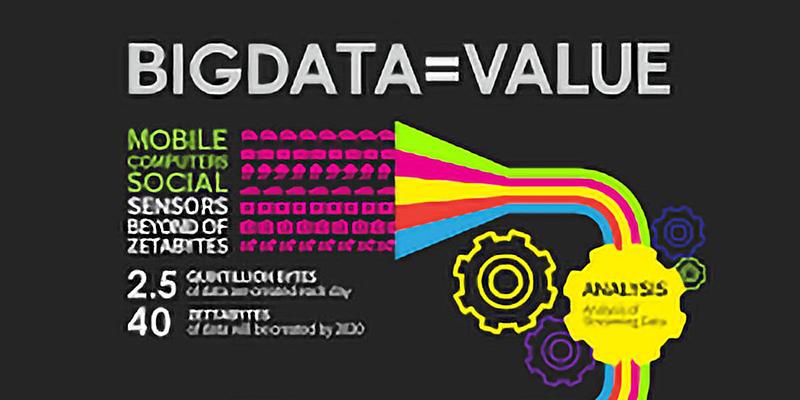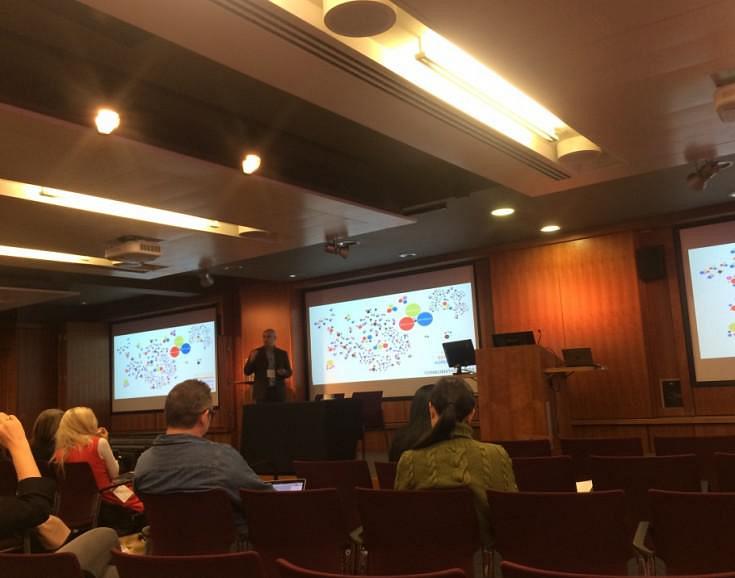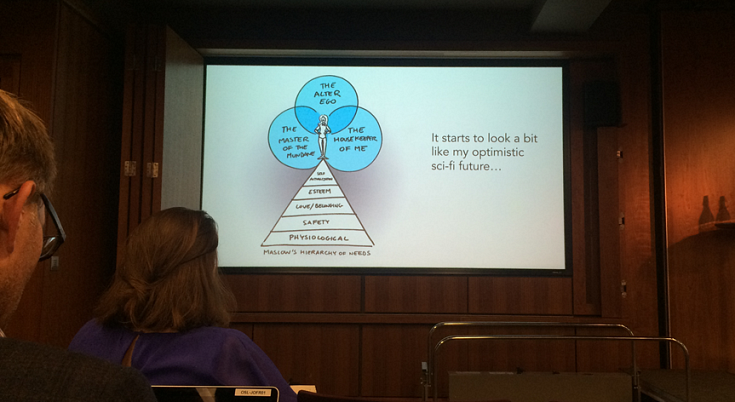Make Me Think | A Reflection on UCD 2015
29 October 2015 - Nicola Dunlop

Unlike other conferences rooted around user experience, UCD 2015 took an alternative approach by focusing holistically on humanity in digital landscapes. This conference was not focused on sharing UX tools and techniques but instead on thinking about how understanding humans enhances our ability to influence future interactions in the digital world. With such an open approach, the doors were unlocked to a range of disciplines with a shared interest which was celebrated through a range of diverse and thought-provoking talks. The strongest conclusion to draw was to make users think.

The notion of ‘make me think’ was initially addressed within ‘Make Me Think – Friction in Design’, where Bill Barham highlighted the importance of designing to educate users, challenging Steve Krug’s theory outlined in ‘Don’t Make Me Think’ (2000). The premise of ‘Don’t Make Me Think’ is how the interaction with technology must intuitively match users’ expectation to create a seamless interaction through which one can simply flow. This is true to an extent, yet as technology evolves and continues to play by these rules one may argue that the user is adversely dumbed down.
Bill discussed the dependency we now place on technology to think for us which leaves us a little less smart when we are challenged to go at it ourselves. Therefore, as we become more integrated with technology it is our responsibility as UX Professionals to find ways in which our intellect can be supported in our interactions. We need to alter how technology responds to user needs by adopting a more human approach. A large amount of what makes us human is the ability to make decisions based on emotion rather than logic.
Regardless of what appears to be a logical solution what we choose is ultimately influenced by how intellectual decisions for us which we have little emotional control over. However, if technology was to apply emotional intelligence to logical responses, users would then be provided with the tools needed to make independent and intellectual decisions for themselves.

Although this may sound futuristic, it is already starting to emerge, for example with recommendation features on retail websites. Retail sites are able to make accurate recommendations based on user behaviour which users can then choose to interact or ignore. Controversially one may argue that even these recommendations, although positioned as an informal suggestion, remove critical thinking and the ability for users to freely explore the site as they would naturally.
Therefore, it is about striking a balance between make me think and don’t make me think. I believe it is down to the context of use to determine the degree to which the user is allowed to think for themselves and when the machine actually knows best.
You might also be interested in...
European Accessibility Act Now in Force: What Your Business Must Do
28 June 2025The European Accessibility Act is now in force, requiring organisations to ensure digital and physical products meet new accessibility standards across the EU. This major milestone will make physical and digital services more inclusive across the EU - find out your obligations.
Read the article: European Accessibility Act Now in Force: What Your Business Must DoConsumer Duty Compliance: Measuring Outcomes That Matter
4 March 2025Explore how financial services can move beyond traditional satisfaction metrics to master outcome measurement for Consumer Duty compliance. Learn about Key Experience Indicators (KEIs) and strategic approaches with User Vision's expertise.
Read the article: Consumer Duty Compliance: Measuring Outcomes That MatterGetting to the root causes of usability errors and accessibility problems
10 April 2024Delve into the power of Perception-Cognition-Action analysis, unravelling the root causes of interface errors and hazardous situations to refine digital designs for optimal usability and accessibility safety.
Read the article: Getting to the root causes of usability errors and accessibility problems